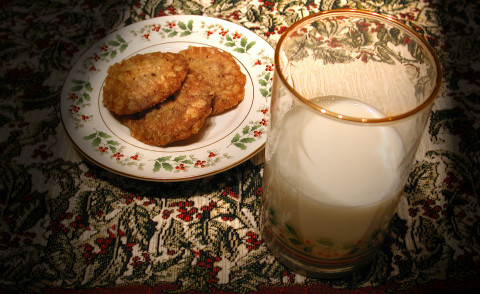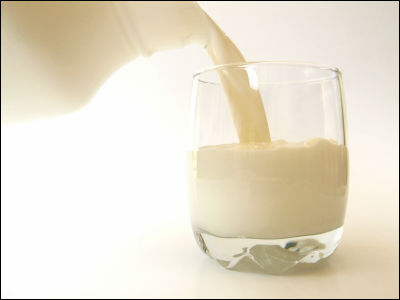Introduction of fat tax in Denmark, subject to butter, milk and meat

Since October 2011, we introduced a quite eccentric taxation system called "fat tax" that levies tax on fat in Denmark.
BBC News - Denmark introduces world's first food fat tax
The world's first "obesity tax" is enforced in Denmark | YUCASEE MEDIA (Yukashimedia) | Comprehensive information site to stimulate the highest grade | 1
Denmark, butter and so on "Health Tax" Aim for Health Promotion: Nihon Keizai Shimbun
Introduced "fat tax" in Denmark NHK News
"Fat tax" is 16 kronees (about 220 yen) per kg of saturated fatty acid for food containing saturated fatty acids of 2.3% or more, such as dairy products such as butter, cheese, milk, meat, edible oil, It is to collect taxes. Taxable items are said to include not only domestic products but also foods imported from overseas.

Because English is described as "Fat tax", there are slight variations in translated words such as "obesity tax" and "fat tax" in the media reports in Japan, but subject to taxation is saturated fatty acid in food, obesity Because it is not that some kind of tax is imposed on people, it seems that the "fat tax" is more approximate to the actual situation.
The calculation method that it is based on the amount of saturated fatty acid in food is not very intuitive, but if you give an example, the price rises by about 1.5 dollars (about 115 yen) per kg of butter. As I was informed that it will be enforced from October, the demand for rushing up has increased greatly in September, and shoppers trying to buy the target foods before each price rise seem to be rushing to each store.
Because the intake of saturated fatty acids is said to cause causes of heart disease and cancer etc., the Danish government explained that the purpose of introducing "fat tax" is to improve the health of the people and increase the average life expectancy doing. On the other hand, the economic situation of the country is not in a very good condition, and government finance falls into the deficit in the fourth quarter of 2008, when the Lehman shock occurred. As the balance of government debt, which is the sum of the country and the rural area, has increased to 43.3% of GDP in 2010, it is intensively focusing on fiscal rebuilding from 11 to 13 years and as part of it It is believed that a tax system was introduced. Taxation of about 2.2 billion SEK (about 24.9483 million yen) is anticipated by this taxation, and consumption of butter is expected to decrease by about 15%.
Whether processed foods are covered also means that confectionery including butter and milk like cookies must also analyze ingredients finely for tax collection. Then it seems to be a considerable burden to each food maker.

The response to "fat tax" domestically and abroad is great, and it seems that some people reckon this taxation as "nightmares of bureaucracy and politicians", or those who consciously think that consumption will only flow out of the country. Also, some scientists say that if the purpose is to control obesity, there is an opinion that saturated fatty acids, not salts, sugar, highly refined carbohydrates such as white rice and wheat flour should be regulated.
According to the British BBC broadcasting, the introduction of the system in the form of "fat tax" seems to be the world's first, but in Hungary there are similar tastes such as potato chips, carbonated beverages and nutritional drinks Taxed mainly on items "Potato tax"there is. As for the Hungarian government, too, the economic situation is not as good as the Danish government, and it seems that the main objective is to raise the tax revenue by tax rather than to say "health promotion" I will.
There are two tax systems that began with the title of "rectify unhealthy", but sometimes it is opposed to a wider target layer than to the luxury goods such as tobacco and alcohol, and it really depends on whether people can accept it well It is place.
Related Posts:







